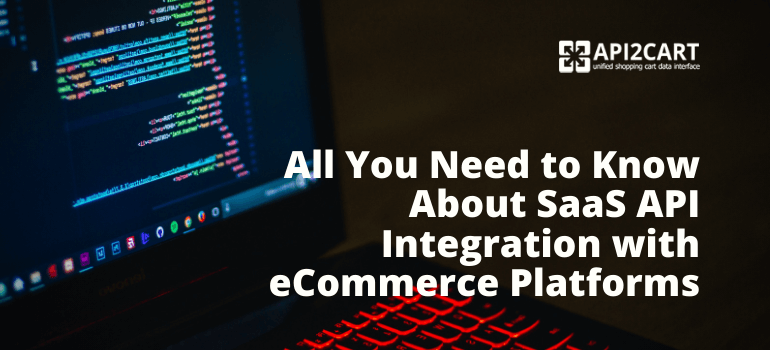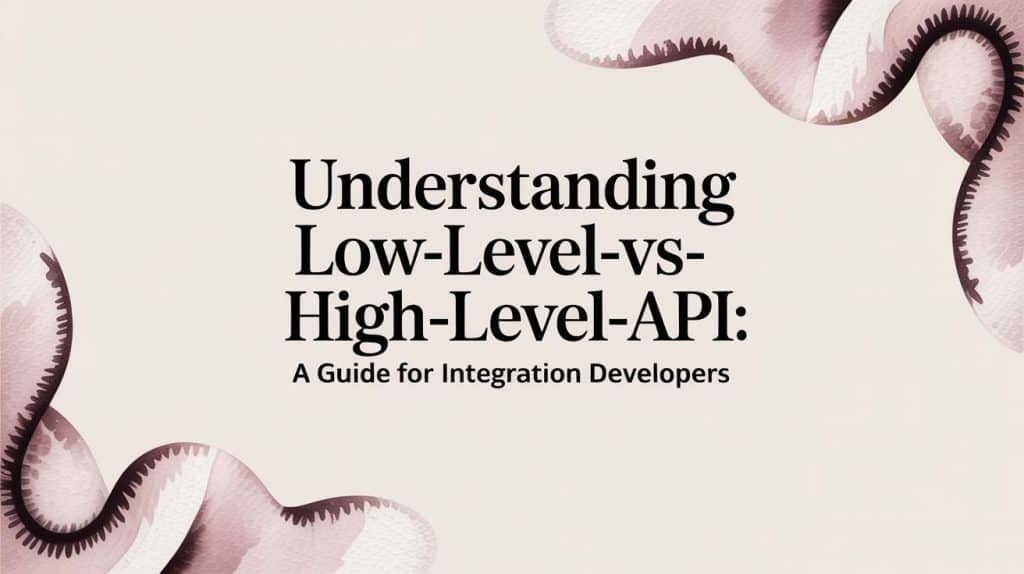
In 2025, SaaS providers are under more pressure than ever to connect seamlessly with the growing number of eCommerce platforms and marketplaces. Online retailers expect their tools, whether for shipping, inventory, analytics, or marketing, to work instantly across Shopify, Magento, WooCommerce, BigCommerce, and dozens of others. That demand makes API integration a mission-critical part of SaaS growth.
API integration with modern eCommerce platforms enables you to save a great deal of time since you won’t have to spend your whole day moving data between systems. Proper integration ensures that the product information is up-to-date across all platforms. So, your clients won’t have to deal, for example, with out-of-stock situations using your software. Thanks to eCommerce integration, you’ll be able to access with ease any information related to invoices, orders, products, customers, taxes, and the list goes on.
In this article we'll explore the basics of SaaS API integration with eCommerce platforms and show you how you can use it to grow your business.
What is SaaS API Integration with eCommerce Platforms?
SaaS API integration with eCommerce platforms is the process of connecting your own SaaS solution to the APIs of different eCommerce platforms. The best thing about integrations is that you can manage all your clients’ data to perform your operations and automate your clients’ processes.
eCommerce shop owners need a wide range of software to run their businesses smoothly. For instance, they need inventory management solutions to keep track of their stocks, save time updating the inventory, and never run out of stock for a particular product. Especially if they are expecting a massive stream of traffic to their site.
Also, they need to use, for example, shipping software. It helps them to see which channels convert the best, gain transparency during shipping, and properly manage order packaging.
So, online merchants need to use various SaaS apps like yours to automate their tasks, and you need to have the integration with shopping platforms to work with the data from their e-stores.
Instead of wasting precious time trying to perform intricate integrations with eCommerce platforms and become a valid choice for your prospects, it’s wiser to focus on growing your brand and offering a superior service.
Let the experts do the integration in your place while you focus on growing your brand in your customers' eyes. How can you do that? Choose API2Cart, an advanced shopping cart integration tool that does all the lifting in your place, so you can get to enjoy seamless integrations.
Why SaaS App Providers Need a Сonnection with eCommerce Platforms?
As a SaaS app provider, you want to benefit from a connection with modern eCommerce platforms due to several reasons. Whether it’s Shopify, OpenCart, WooCommerce, PrestaShop, Magento, or any other eCommerce solutions, setting up a connection with them allows your business to:
- Expand and grow by reaching tens of thousands of new potential customers who are using these platforms to conduct their daily business
- Start to work globally as more developed eCommerce integrations means more prospective clients of your software from all over the world
- Provide superior services to your clients by retrieving their information with ease
- Save time by quickly managing your customers’ information
- Increase profits by having more customers who choose you over the competition.
So, a reliable connection with multiple eCommerce platforms allows your SaaS solution to be more competitive on the market and expand your business possibilities. However, eCommerce integration development is not an easy process as each platform has its unique specific. So, it would be best to consider different options to avoid all the integration difficulties as much as possible.
How to Develop SaaS API Integration with Multiple eCommerce Platforms?
When it comes to developing a SaaS API integration with various eCommerce platforms, you have two options. The first solution, which is also the easiest, safest, most reliable, and cheapest, is to leverage the benefits offered by API2Cart. With API2Cart unified API, you can enjoy a seamless connection to 60+ eCommerce platforms without having to deal with any challenges.
The second option you have, is to try to manually integrate your SaaS app with the APIs offered by the eCommerce platforms out there. This option comes with some huge disadvantages, out of which we can pinpoint the following:
- You have to integrate with each platform manually
- Each integration costs thousands of dollars and requires weeks, if not months, depending on the complexity
- You need to hire experienced developers who have developed these integrations before if you want to be successful
- Numerous APIs have bugs and issues that have to be overcome. That requires constant fine-tuning and improvement
- Manual integrations are risky because they can become portals for cybercriminals to come and steal precious data
- Keeping integrations updated is quite challenging, especially as shopping platforms release new upgrades regularly
As you have probably noticed, it becomes entirely pointless to perform eCommerce integrations on your own. You have no benefit whatsoever, but only drawbacks. However, with API2Cart, you can only win. You win time, money, and more satisfied customers.
So how can you use API2Cart for getting a lot of benefits from SaaS integration with eCommerce platforms? You can access your customers’ e-store data and use more than 100 API methods for managing it. With API2Cart, it’s pretty simple to retrieve, synchronize, add, and delete the info related to products, customers, shipments, taxes, etc. All you have to do is to integrate your soft with API2Cart.
Conclusion
Getting your SaaS business integrated with the APIs of shopping platforms is a must-have if you want to retain your existing customers, grow your business, and reap all other benefits.
Contact us now for a free quote and become eligible for a FREE 14-days trial period to test API2Cart. Explore how it can help you to develop your SaaS API integration with Magento, Shopify, WooCommerce, and other eCommerce platforms easily and fast.



